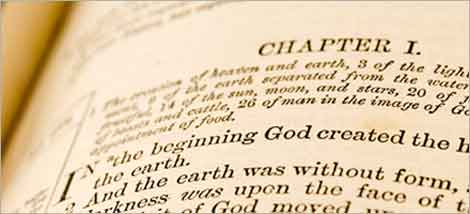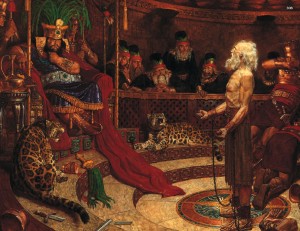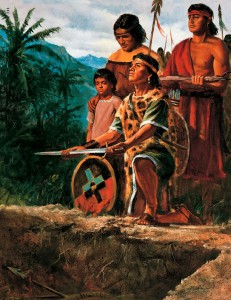Q. I grew up believing that Jesus was the only son of God. In your faith do you believe differently?
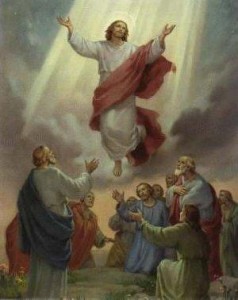
Short answer: Yes and No.
Long answer: You might think this question would have a straightforward answer, but turns out it doesn’t. Entire ecumenical councils have been convened to address the relationship between Jesus and the Father. It’s a sticky question, and this is why:
The Bible uses the term “Only Begotten” four times in reference to Jesus (the Book of Mormon and other LDS scriptures tack on a whopping forty more). So it seems pretty straightforward; he must be the only one. At the same time, however, there are many other scriptures that seem to indicate there are more children of God—namely us. Those scriptures refer to the human race as either being the children of God already (Acts 17:29: “Forasmuch then as we are the offspring of God…”) or having the potential to become the children of God (John 1:12: “But as many as received him, to them gave he power to become the sons of God”). Furthermore, sometimes Jesus refers to the Father only as “my Father” (Luke 2:49), and sometimes as “your Father” (Matt 5:48), and sometimes both (John 20:17).
So which is it? Is Jesus the only son of God, or are we all sons and daughters of God? And if we’re not now, is it possible for us to become so?
I don’t pretend to understand how the majority of Christianity answers those questions, especially since the early creeds seem confusing on what exactly the relationship between the Father and the Son is. Luckily you just want to know what Mormons believe and that is, by comparison, pretty straightforward.
1. All of us (including Jesus) are children of God because God is the Father of our spirits.
To suggest that Jesus is always and ever was the only son of God is to ignore a whole lot of scripture in the Bible. In one sense, we are all children of God. God is the Father of our spirits. This is why Paul calls us all “the offspring of God.” We have that piece of divinity inside us. Jesus is special because he was, as the author of Hebrews calls him, “the Firstbegotten.” The same author calls His church the “church of the Firstborn.” Just the use of the words Firstbegotten and Firstborn imply that there are others. Not only that, we were all with God and Jesus before the world was. (See the posts on the pre-mortal life of man for a better explanation). In short: all of us are children of God, but Jesus is the first.
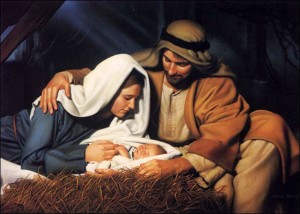
2. Jesus is the only begotten of the Father in the flesh.
If we all are children of God, why are the scriptures so adamant that he is the “Only Begotten Son”? To beget someone is to father them. Everyone born on earth has been begotten by an earthly, mortal father. That is, everyone but Jesus. Jesus was born to a virgin. His father is God. We don’t pretend to know the details of all that, but Jesus is the only one for whom that is true, and that’s why He is called the Only Begotten.
3. We become the sons and daughters of God in a different sense by accepting the gospel.
If we are all already the children of God, what is all this scriptural talk of becoming the children of God? Turns out sometimes salvation is spoken of as becoming the sons/daughters of God, or of Christ. When Jesus came to earth and atoned for our sins, he opened the way to be saved. He gave us power to become the sons of God, as John said. Maybe it’s confusing to describe it that way, but hey, it wasn’t my idea. Besides, it’s a good way to describe the spiritual change that happens when we accept Jesus Christ. I think the Book of Mormon king Benjamin described it best to his people, who had just accepted Jesus Christ with a covenant to follow Him:
“And now, because of the covenant which ye have made ye shall be called the children of Christ, his sons, and his daughters; for behold, this day he hath spiritually begotten you; for ye say that your hearts are changed through faith on his name; therefore, ye are born of him and have become his sons and his daughters.” (Mosiah 5:7)
So we see that if there were only one sense in which a person could be a child of God, the Bible would remain ambiguous on the question. But if they are referring to different relationships, we get a coherent picture of our relationship with God the Father and Jesus Christ. In one sense everyone is a child of God, in another sense only Jesus is, and in a third sense, we start out not children and then have the option to become children of God.
An important footnote: Do Mormons believe Jesus and Satan are brothers?
 One of the more shocking things you’ll hear about Mormonism is that we believe that Jesus and Satan are brothers. Now that we’ve outlined our relationships to God, we can address that claim in the proper context. It’s true that they are brothers in the first sense that I described above, but saying it out of that context is intentionally misleading, because almost everyone is thinking in the second sense. When you’re coming from the position that Jesus is the only son of God, putting Satan up there with him not only seems like a blatant contradiction of the “Only Begotten” scriptures, but also makes it seem like we consider them to be equals. That couldn’t be further from the truth. Jesus Christ, the Greatest of all, who personifies goodness and grace, and Satan, the father of lies, who rebelled against God and was cast out of heaven, are not equals. They are brothers in the sense that we are all brothers and sisters, spiritual offspring of the same Father. Aside from that, they couldn’t be more different.
One of the more shocking things you’ll hear about Mormonism is that we believe that Jesus and Satan are brothers. Now that we’ve outlined our relationships to God, we can address that claim in the proper context. It’s true that they are brothers in the first sense that I described above, but saying it out of that context is intentionally misleading, because almost everyone is thinking in the second sense. When you’re coming from the position that Jesus is the only son of God, putting Satan up there with him not only seems like a blatant contradiction of the “Only Begotten” scriptures, but also makes it seem like we consider them to be equals. That couldn’t be further from the truth. Jesus Christ, the Greatest of all, who personifies goodness and grace, and Satan, the father of lies, who rebelled against God and was cast out of heaven, are not equals. They are brothers in the sense that we are all brothers and sisters, spiritual offspring of the same Father. Aside from that, they couldn’t be more different.
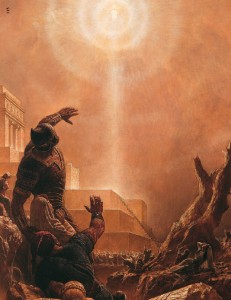

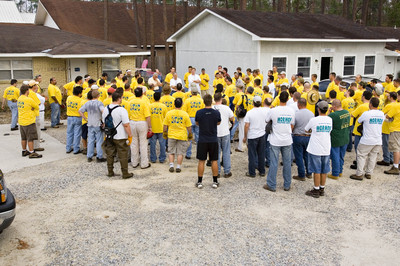 The common anecdote told goes something like this: In the aftermath of a hurricane, a young lady is being interviewed by a TV reporter and he asks her who she has seen getting involved in the cleanup. She responds: “There were two groups here right away–the Mormons and the LDS church.”
The common anecdote told goes something like this: In the aftermath of a hurricane, a young lady is being interviewed by a TV reporter and he asks her who she has seen getting involved in the cleanup. She responds: “There were two groups here right away–the Mormons and the LDS church.”